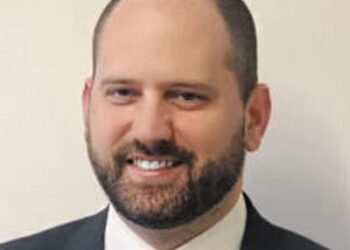You’ve had a lot of experience in the super industry, what are some of the biggest trends you’ve seen either broadly or in relation technology?
The biggest trend is the cloud. Initially it wasn’t even called the cloud; we had to tell everyone about what is was. Now everyone understands it and even if they don’t they figure they should – they really want to know what it’s about, where the efficiency is and why it works so there’s been a real shift. It’s been great for us because we’ve already been involved in cloud technology for five years so we’ve had an opportunity to get the learning process out of the way in the first couple of years and we’re now powering along.
The other significant trend is the growth of SMSFs; there’s been an increased focus on SMSFs in the media and a stronger focus on what trustees are doing with their SMSF in terms of investment strategies and their retirement. This has led to a greater number of people coming up with ideas and ways to service the market. It’s great to see this much energy and focus going towards the management of this big pool of assets. One of the big drivers of SMSFs has been individuals wanting direct control; they don’t necessarily trust the big institutions to look after their money for them. That’s been a big trend and I don’t see that abating any time soon.
How different is the SMSF sector now to when you first joined the SMSF industry seven years ago?
Certainly what I’ve seen over the past seven years is the level of professionalism, innovation, investment and technology and the sophistication of products in this market place increase. I think it’s great the Cooper Review acknowledged that this market place is actually well behaved and while there’s always the odd exception to that by and large the industry is doing a fantastic job.
Did your perception of the SMSF sector change following your transition from the retail and industry super fund industry to the SMSF industry?
Prior to joining Class seven years ago I always regarded self-managed super as the ‘wild west’ sector of the super industry. I think because of my industry background I had the view that it was an uncontrolled market place and I now know that’s not the case at all.
Do you think other parts of the financial services industry still hold this perception of the SMSF sector?
Absolutely, this is still the view of the people I use to work with in the large end of super. They regard it as this strangely structured thing and that’s because in their world everything is big scale and structured in a way that they understand. My view is they don’t understand SMSFs and its one of one of those things where if you don’t understand it, you can easily form wrong opinions about it and I think that’s what they do. They say “What’s going on over there? How can this system with all these advisers, accountants and various other providers like legal firms possibly work?” They’re use to having everything siloed and structured in a particular way.
Do you think the pace of change experienced by the SMSF industry in the past seven years will be repeated in the next seven?
I think it will because there are so many people saying what can we do better here? How can we drive efficiency here? How can accountants and advisers work together more effectively? That’s a key driver of the changes in the licencing regime and those sorts of things. There are a number of reports saying if accountants and advisers are not working closely together, then they’re not really servicing their clients effectively and there’s still a lot of work to be done in that area to really bring all the pieces together and bring down the costs.
What are some of the key things advisers need to do to ensure they survive some of the changes occurring?
They need to work out what their part in helping the client is and stop fighting with each other over whose client it is. It’s the client’s investments, it’s their SMSF, so the accountant and the adviser need to understand their role is in helping trustees. If they approach it in this way and focus on what their value proposition is it will all work itself out.


